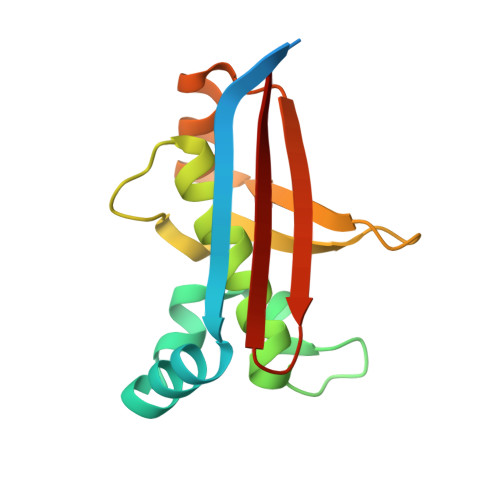Analysis of Streptomyces Coelicolor Phosphopantetheinyl Transferase, Acps, Reveals the Basis for Relaxed Substrate Specificity.
Dall'Aglio, P., Arthur, C., Williams, C., Vasilakis, K., Maple, H.J., Crosby, J., Crump, M.P., Hadfield, A.T.(2011) Biochemistry 50: 5704
- PubMed: 21595442
- DOI: https://doi.org/10.1021/bi2003668
- Primary Citation of Related Structures:
2JBZ, 2JCA, 2WDO, 2WDS, 2WDY - PubMed Abstract:
The transfer of the phosphopantetheine chain from coenzyme A (CoA) to the acyl carrier protein (ACP), a key protein in both fatty acid and polyketide synthesis, is catalyzed by ACP synthase (AcpS). Streptomyces coelicolor AcpS is a doubly promiscuous enzyme capable of activation of ACPs from both fatty acid and polyketide synthesis and catalyzes the transfer of modified CoA substrates. Five crystal structures have been determined, including those of ligand-free AcpS, complexes with CoA and acetyl-CoA, and two of the active site mutants, His110Ala and Asp111Ala. All five structures are trimeric and provide further insight into the mechanism of catalysis, revealing the first detailed structure of a group I active site with the essential magnesium in place. Modeling of ACP binding supported by mutational analysis suggests an explanation for the promiscuity in terms of both ACP partner and modified CoA substrates.
Organizational Affiliation:
Department of Biochemistry, School of Medical Sciences, University of Bristol, University Walk, Clifton, Bristol BS8 1TD, U.K.

















